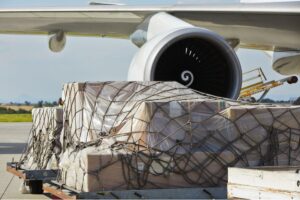
Dar es Salaam. The Australian High Commission said yesterday that mining contracts signed with Australian companies in the past two years are valued at over Sh10 trillion ($3.6 billion), according to a recent estimate from the Tanzanian government.
The Australian High Commission’s Trade Commissioner for Africa, Mr Scott Morriss, made this statement during the Australian Tanzania Mining Breakfast panel discussion event held in the city.
He acknowledged that while the number of Australian mining companies and the volume of investment may fluctuate over time, this investment reflects Australia’s strong commitment to connecting its world-leading technology, equipment, and expertise in mining with Tanzanian companies.
“In practice, this investment demonstrates Australia’s dedication to supporting Tanzania’s mining sector, making it safer, more efficient, and more profitable,” Mr Morriss said.
According to Austrade’s 2024 research, 12 Australian companies have committed over $26 million towards exploration activities in Tanzania, showcasing Australia’s confidence in the future of Tanzania’s mining industry.
“Australian companies are also deeply involved in education and skills training for local communities near mining operations. This includes everything from K-12 Africa-focused digital education to postgraduate engineering qualifications earned online, as well as specialized training in mine site safety and machinery operations,” Morriss explained.
He further emphasized that Australian mining companies are actively helping transform African mining operations into world leaders. Over 65 percent of Australian Mining, Equipment, Technology, and Services (METS) companies export to overseas mining destinations, with approximately one-third of these exports directed to Africa.
In 2020, Australian METS companies earned $114 billion AUD globally, operating with resilient supply chains that are adaptable to customer needs worldwide.
Australian METS companies are renowned for solving some of the toughest challenges in harsh mining environments, ranging from large-scale open-pit mines in the Kalahari Copper Belt to underground gold mining in Northern Canada’s sub-zero temperatures.
These companies have been at the forefront of innovative technologies and approaches, including improved water management practices and post-life-of-mine industries that benefit local communities long after mines close.
“However, Australia’s rise as a global leader in sustainable METS didn’t happen overnight. It was the result of decades of experience, trial and error, sound investment policies, and government stability in areas such as taxes, regulations, and overall governance. This consistent, long-term collaborative approach from Australian governments, regardless of political affiliation, has fostered an environment where Australian companies can thrive and lead in sustainable mining practices,” Morriss said.
Meanwhile, Deputy minister for Minerals Steven Kiruswa emphasised the country’s ambition of becoming a mining hub in Africa, highlighting its strategic location and vast reserves of both metallic and non-metallic minerals.
“The Tanzanian government is investing heavily in infrastructure, such as launching the Standard Gauge Railway (SGR), upgrading airports and roads, and enhancing electricity access, ensuring a conducive environment for investors,” he said.
He also pointed to reforms in Tanzania’s mining laws, notably in 2017 and 2019, aimed at creating a more investor-friendly environment.
These reforms, coupled with political stability, investment incentives, and standard agreements that guarantee investor security, have made Tanzania an attractive investment destination.
With the goal of achieving a 10 percent contribution to GDP from the mining sector by next June, up from the current 9 percent, the government is also focused on boosting local content.
“This includes enabling Tanzanians not directly involved in mining to benefit from the sector. Local content regulations have led to significant contributions from Tanzanian companies, with $1.5 billion spent over the past four years in partnerships with foreign companies, further driving the growth of Tanzania’s mining industry,” he said.














